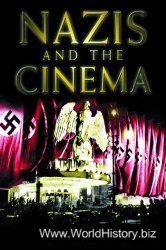The intellectual challenge of 19th-century science appeared to erode the basis of Judeo-Christian religions. Scientific methods, discoveries, and theories in geology, biology, and history questioned the literal text of the Bible, but the challenge of biology provoked a major religious controversy. When Charles Darwin in his On the Origin of Species (1859) theorized (on the basis of evidence) that plants and animals evolved over eons through natural selection and were not created by God in a few days, the effect was unsettling. As the implications of Darwinism became apparent, Christians divided into liberal and orthodox groups. The liberals accommodated their theology to the new scholarship, while the orthodox adhered to their faith that the Bible was literally the word of God. For liberals, John Fiske’s Outlines of Cos-mic Philosophy (1874) reconciled theism and evolution by arguing that there was no conflict between science and religion. He relegated religion to what the leading apostle of evolution, Herbert Spencer, called “the Unknowable.” Indeed, liberals came to view EVOLUTION as God’s plan. Henry Ward Beecher associated evolution and progress with Christianity and civilization. By 1900 preachers were citing evolution as a proof of Christianity rather than a challenge to it.
The extent of liberal acceptance of the implications of Darwinism varied. Some saw religion as a natural phenomenon, with Christianity subject to the same tests of integrity as any other faith or secular idea, but most liberals still believed that Christianity was special and not just one among many valid religions. By 1900 the seminaries and urban ministers of the major Protestant denominations were comfortable with an evolutionary philosophy that apparently confirmed the superiority of Christianity because it seemed to be the “most” evolved of the world’s religions. Ironically, Darwinism was initially perceived as a threat by Protestants and then used a generation later by JosiAH Strong and others to sustain a belief in American Protestant Anglo-Saxon superiority and to inspire missionary activity.
Orthodox Protestants, who tended to be rural and working class, also varied their responses as they rejected evolution. The entire South was orthodox, while in the North mainstream Protestant denominations had orthodox and liberal wings or factions. The acceptance of Darwinism in scholarly seminaries and in fashionable churches led to a resurgence of millennialism within mainstream churches and in the growth of new denominations like the Seventh-Day Adventists and Jehovah’s Witnesses. The emphasis on prophesies of the imminent second coming (advent) of Christ and the end of the world led to an emphasis on the literal, not the metaphorical, truth of the Bible.
Adventism was also embraced by those in mainstream churches who reacted against modernity. Orthodox scholars organized two Prophecy Conferences (in 1878 and 1886) and an annual Niagara Bible Conference to share in recognizing signs of the end and to uphold a literal belief in the Bible. Through their Bible study they decided that God had ordained a system of “dispensations” or eras following upon each other and ending with the last days. A close associate of Dwight L. Moody, Cyrus Ingerson Scofield (1843-1921), was its chief advocate. Scofield, a Congregational minister, consolidated the dispensational scheme into seven ages concluding with the Great Sabbath or the Millennium of Christ ushered in by the Second Coming and the end of days. His work endures today in the popular Scofield Reference Bible (1909). Vital to the dispensational analysis of history and the Bible is the need to assert the literal and infallible authority of the Bible, and from that need, the 20th-century Fundamentalist movement developed.
Further reading: Paul A. Carter, The Spiritual Crisis of the Gilded Age (DeKalb: Northern Illinois University Press, 1971); Jon H. Roberts, Darwinism and the Divine in America: Protestant Intellectuals and Organic Evolution, 1859-1900 (Madison: University of Wisconsin Press, 1988).
—W. Frederick Wooden




 World History
World History









